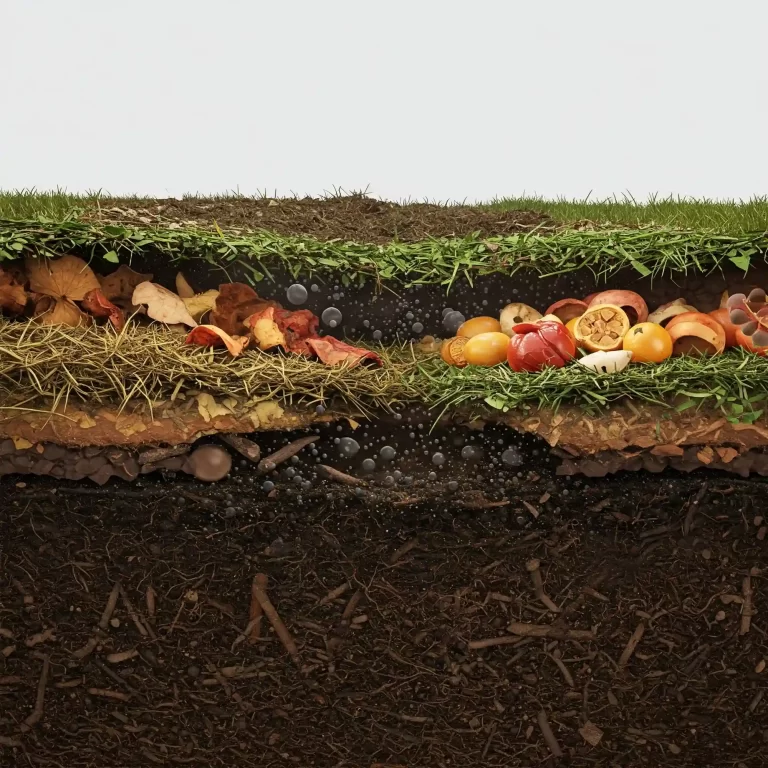Key Takeaways:
- Composting on a global scale tackles organic waste, reduces landfill strain, and boosts soil health.
- Community gardens and large-scale composting initiatives are the cornerstones of this sustainable approach.
- Benefits include reduced greenhouse gas emissions, improved soil fertility, and fostering community engagement.
- Challenges involve infrastructure development, education, and scaling up initiatives effectively.
Composting on a global scale is no longer a niche concept; it’s a crucial component of the environmental jigsaw puzzle. It’s the collective effort of individuals, communities, and organizations to tackle organic waste through controlled decomposition, transforming it into a treasure trove for our soils – compost.
This article delves into the world of global composting, exploring the role of community gardens and large-scale initiatives in creating a more sustainable future. So, grab a cuppa, settle in, and let’s get our green thumbs twitching!
What is Composting on a Global Scale?
Imagine a world where food scraps, garden trimmings, and other organic materials don’t end up clogging landfills, spewing harmful methane gas. That’s the magic of composting on a global scale. It’s a collaborative effort to manage organic waste by encouraging decomposition, resulting in a nutrient-rich soil amendment – compost.
But why is this so important? Here are the top reasons:
- Reduces landfill waste: Organic waste decomposes slowly in landfills, releasing methane, a potent greenhouse gas. Composting diverts this waste, reducing methane emissions and conserving valuable landfill space.
- Boosts soil health: Compost is a superhero for your soil, packed with nutrients and organic matter. This improves soil fertility, structure, and water retention, benefitting both agricultural and residential landscapes.
- Fosters community engagement: Community gardens often integrate composting as a way to manage their waste and create a valuable resource for their gardens. These initiatives foster a sense of community and environmental responsibility.
The Powerhouse Duo: Community Gardens and Large-Scale Initiatives
Composting on a global scale operates through two key players:
1. Community Gardens:
These green havens, often found in urban or suburban areas, are havens for community engagement and sustainable practices. Composting programs within these gardens allow them to:
- Manage their organic waste efficiently: Food scraps, leaves, and other garden trimmings are composted, reducing reliance on external waste disposal methods.
- Produce nutrient-rich compost: The “garden gold” created is used to nourish the very same plots it originated from, closing the loop and promoting self-sufficiency.
2. Large-Scale Composting Initiatives:
These broader programs are implemented by municipalities, organizations, or private companies to manage organic waste on a larger scale. They often involve:
- Centralized composting facilities: These facilities process organic waste from various sources, including households, restaurants, and food businesses.
- Advanced technologies: Some facilities utilize innovative technologies like in-vessel composting to efficiently manage large volumes of waste.
Benefits of Composting on a Global Scale: A Blossoming Future
The benefits of embracing composting on a global scale are as plentiful as the fruits and vegetables it helps nourish:
Environmental Benefits:
- Reduced greenhouse gas emissions: By diverting organic waste from landfills, methane emissions are significantly reduced, mitigating climate change.
- Improved soil health: Compost application enhances soil fertility, leading to increased carbon sequestration and healthier ecosystems.
- Conserved resources: Composting reduces the need for synthetic fertilizers, preserving valuable resources and promoting sustainable practices.
Economic Benefits:
- Job creation: Composting facilities create new job opportunities in waste management, infrastructure development, and related sectors.
- Reduced landfill costs: Diverting organic waste from landfills lowers disposal costs for municipalities and individuals.
- Increased agricultural productivity: Healthy soil nourished by compost promotes better crop yields and overall agricultural sustainability.
Social Benefits:
- Community engagement: Community gardens foster social interaction, environmental awareness, and a sense of shared responsibility amongst residents.
- Educational opportunities: Composting initiatives provide valuable learning experiences for individuals of all ages, promoting environmental stewardship.
- Improved public health: Reduced reliance on landfills translates to cleaner air and potentially improved public health outcomes in surrounding communities.
Challenges and Considerations: Nurturing the Growth of Global Composting
While the potential of global composting is undeniable, there are challenges to address:
- Infrastructure development: Establishing and maintaining efficient composting facilities, particularly in resource-limited regions, requires ongoing investment and infrastructure development.
- Education and awareness: Raising public awareness about the importance of composting and proper waste segregation practices is crucial for widespread adoption.
- Scaling up effectively: Successfully scaling up composting initiatives to reach larger populations and manage diverse
Addressing the Challenges: Cultivating Solutions for Global Composting
The challenges associated with global composting, though significant, are not insurmountable. Here are some potential solutions:
- Government incentives: Implementing policies like tax breaks or subsidies for composting infrastructure and community gardens can encourage participation and investment.
- Public-private partnerships: Collaboration between governments, private companies, and NGOs can leverage resources and expertise to develop and implement sustainable composting solutions.
- Educational campaigns: Launching targeted educational campaigns through various channels like schools, community events, and social media can raise awareness and promote responsible waste management practices.
- Technological advancements: Investing in research and development of innovative composting technologies like in-vessel composting can improve efficiency and scalability, particularly in urban areas.
- Community involvement: Encouraging community involvement through volunteer programs, workshops, and educational initiatives can foster a sense of ownership and responsibility for successful composting implementation.
Inspiring Examples: Global Composting in Action
To illustrate the potential of global composting, let’s explore some inspiring examples:
- The San Francisco Compost Collective: This non-profit organization operates a large-scale composting facility that processes food scraps from households and businesses across the city.
- The Kigali Innovation City in Rwanda: This city incorporates a decentralized composting system where residents compost organic waste at home, reducing reliance on landfills.
- The Network of Asian Farmers’ Associations: This organization promotes composting among small-scale farmers in Asia, improving soil health and agricultural productivity.
These examples showcase the diverse approaches and positive impacts of global composting initiatives worldwide.
Conclusion: Cultivating a Sustainable Future, One Compost Bin at a Time
Composting on a global scale is a powerful tool for tackling organic waste, promoting soil health, and fostering a more sustainable future. By embracing community gardens, large-scale initiatives, and innovative solutions, we can cultivate a world where waste becomes a valuable resource, and our planet thrives.
Remember, every effort counts. Whether you start a backyard compost bin, support local community gardens, or advocate for composting initiatives in your community, you’re contributing to a greener future. So, let’s get composting and watch our gardens, and our planet, blossom!

